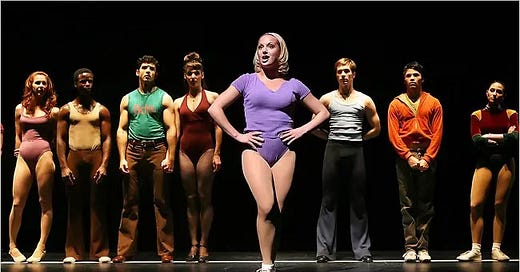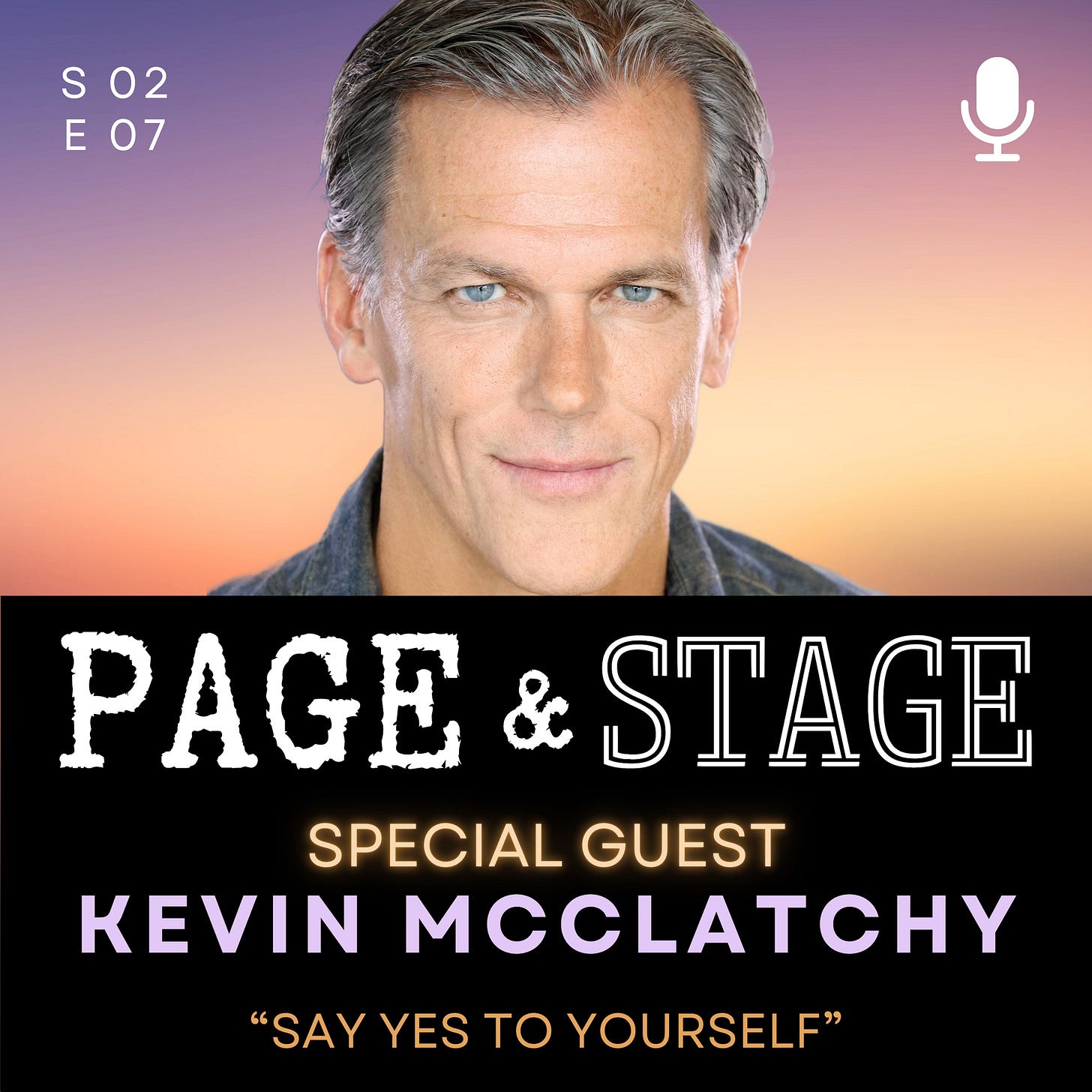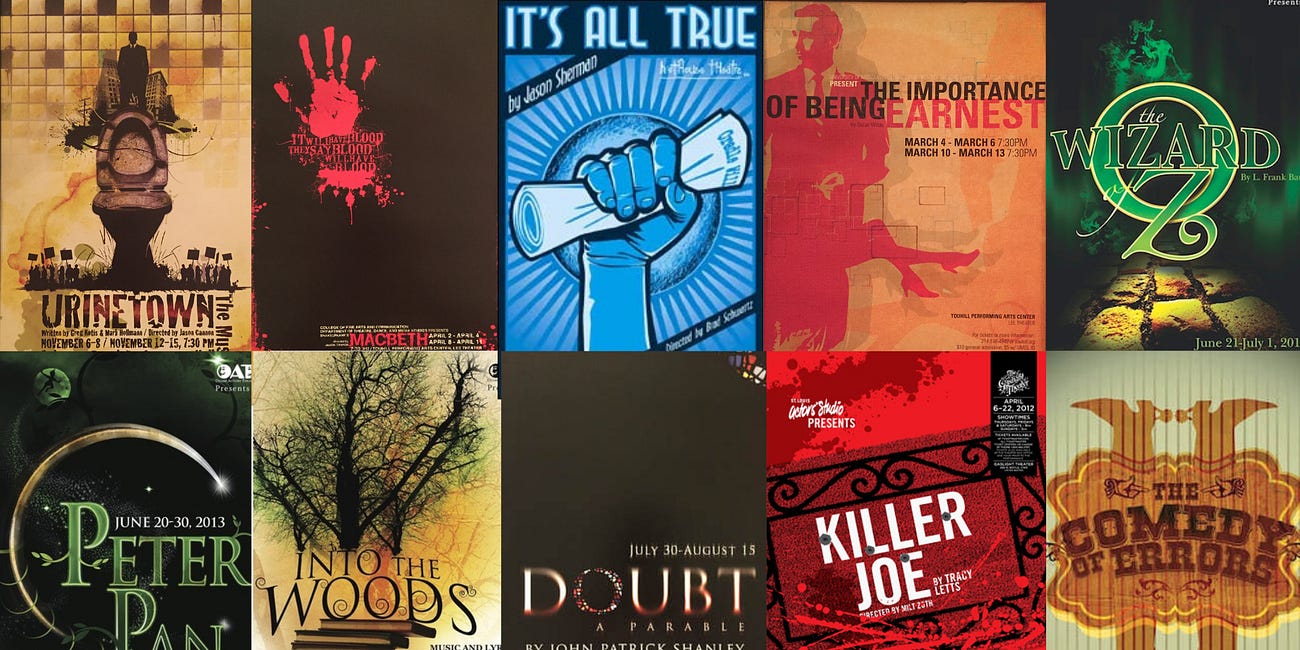Is “Pod-iversary” a thing? If not, I claim the trademark!
Exactly one year ago, Episode 1 of the Page&Stage Podcast officially dropped, featuring the great Will Luera.
If you want to take a trip in the way-way-back machine, click his smiling face below. Our convo totally holds up a year later. He is an improv and storytelling MASTER.
Plus—teaser alert!—I’ve been storycoaching him the last several months as he writes his upcoming play, ENTANGLED, which will have its world premiere with my good friends over at Lifeline Productions this coming May. I will definitely keep you all in the loop.
Since it’s been a year, I’ll occasionally be checking back with previous guests to see what they’re up to.
And if you had a favorite episode, or want me to ask a guest a question on your behalf, hit reply and email me. I welcome all your curiosity.
Storytelling tip o’ the week
Here’s a storytelling problem I get asked about a lot, especially in playwriting and fiction classes.
“Why do all my characters sound the same??”
The sneaky truth lurking beneath that question is this: if all your characters sound the same, that also means they all sound like you.
Now, dialogue is vital. It is one of the fastest and most potent ways to particularize character and supercharge conflict.
Dialogue is also one of the best places to hide exposition. More on the power of dialogue in future Tips o’ the Week.
But when all your dialogue sounds the same…
When all your characters share the same vocabulary and slang…
When they all speak in the same rhythms and sentence lengths…
When they all become indistinguishable without dialogue tags (said, asked, etc)…
… you’re in trouble. Because the reader will get confused, and confusion leads to tuning out.
Answering the why is easy. Your characters all sound the same because you don’t have clear images of them in your mind. And so they all talk the way you do. Of course they do.
The fix for this insidious problem is quite simple: hold imaginary auditions and cast your characters!
Create a character list. Leave space for each one.
Set your imaginary budget at, oh, twenty-seven gazillion dollars. You can hire anyone. Any star of stage or screen, past or present. No one says no to you. You can even afford to bring Cary Grant, Liza Minelli, James Earl Jones, or Maggie Smith back to life.
Jot down your top three choices for each character.
You should immediately notice your characters beginning to buzz and molt in your imagination.
Now for Round 2.
Cast your story again, but this time pull from your favorite characters from plays, movies, books, or TV shows.
This was a trick I developed specifically for new plays, when performers and agents didn’t have a history of casting to compare to, so we’d be inundated with all sorts of actors who weren’t right, or we’d have almost none sign up.
We’d take a typical character description—male, late 20s-early 30s, sarcastic but lovably so, self-deprecating, works in an office—and add a quick “type” tag: a “Chandler Bing” type.
Because “Chandler Bing” is more specific than “Matthew Perry.”
Boom. The agents knew who to submit. The actors knew how to approach the character.
Back to your cheat sheet. Beneath your dream cast of stars, add two types to each of your characters.
Your imagination might already be full to bursting by this point. Awesome. Get to writing.
Or dig one more layer and witness the true power of your imagination.
Round 3. One more round of auditions. Only this time, your casting pool is real people from your life.
Beneath your stars and types, add the name of ONE PERSON from your life. A parent. An aunt. A cousin. A friend. A nemesis. A neighbor. A teacher. A student. A barber. A barista. A boss. A coach. A pickleball partner.
There you go. With your characters thus specified, you won’t be able to do anything but write their voices differently and, more importantly, specifically.
I could write a scene starring my aunt Vondria and my ex-boss Bill (best retail boss ever; long live The Wine Merchant!), and neither of them would sound remotely like each other, much less like me.
You can do this in 15 minutes and it will pay off for you throughout the entirety of your story creation process. Hold imaginary auditions, and cast your story three ways. Keep that cheat sheet next to your keyboard or stuck to your bulletin board or in a note on your screen or anywhere that is easily glanced at when you feel the creep of dialogue uniformity.
Maybe you aren’t far enough into your draft to really have a grasp of your characters, and you think casting is premature.
You know what? That’s OK. Better to cast ‘em now, because with a budget of twenty-seven gazillion dollars, you can always recast them in a later draft.
The Page&Stage Podcast
The next episode drops on Monday!
Yes, it features another cool storyteller from The Ohio State University, but don’t let that turn you off if you root for, well, ANY other college team.
Besides, buckeyes are delicious. The chocolate and peanut butter kind, I mean.
In this episode of the Page and Stage Podcast, I interview Kevin McClatchy, an esteemed actor, director, and associate professor at The Ohio State University. Kevin shares insights into his innovative work with the Shakespeare and Autism Project as well as the Shakespeare and Veterans Initiative. Reflecting on his unexpected journey from journalism and sports marketing to acting, Kevin discusses the formative experiences that led to his artistic career. We also touch upon serendipitous encounters and memorable performances that have defined Kevin's remarkable career in the arts.
100 Plays
In case you missed it, here’s the teaser-promo for 100 Plays: Lessons Learned Telling Stories From the Stage!
100 PLAYS is a second podcast that lives under the Page&Stage banner.
But instead of hour-long deep-dive interviews, this one will just be me, your friendly neighborhood storycoach, sharing bite-sized stories and lessons I’ve gained from working in the professional theatre for almost 30 years.
So this podcast will be part memoir, part love letter to the theatre, and part motivational handbook for all you fellow storytellers out there.
The first full episode drops on Monday, March 31, when I share some behind-the-scenes excitement from my 2003 production of Who’s Afraid of Virginia Woolf?
Thanks as always for reading, and have a great weekend!
Jason “Peanut Butter Lover” Cannon







